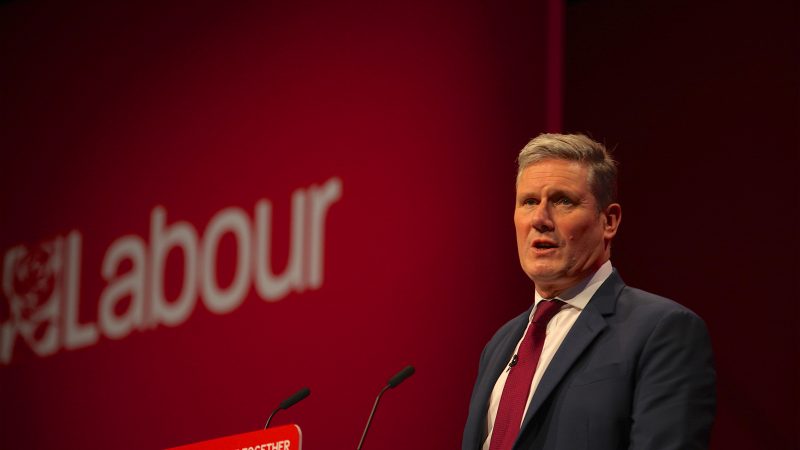
Peter Mandelson is right to call for Labour to develop a plan to lay the foundations for a new economy. He is right that Labour cannot afford to try “sneaking over the finishing line”. This is a period of extraordinary opportunity and threat. Labour must respond in kind, “turn the intellectual tide” and seeking a “watershed win”. Failure to do so will condemn the country to inertia.
But how is Labour to renew itself? Should it, as Mandelson suggested, embrace the political legacy of New Labour? Or should it celebrate and learn from New Labour’s successes, recognise how times have changed and rise to the challenge of the post-Brexit world of national political realignment? This is the choice facing the Labour leadership: restore the politics of New Labour, or forge its own path into the future.
Labour Together has set out a road map in its review of the 2019 general election and in Labour’s Covenant. We argued that Labour must become the party of the national economy and go into the next election with a plan for national reconstruction. By doing so, Labour can take the lead in defining a new political era.
The period of rapid globalisation and the dominance of liberal market ideology is ending and a new geopolitical age is emerging. Great power rivalry and domestic political discontent is encouraging a turn to national security – economic, military and personal – and the increasing role of the nation state in the internal rebuilding of a covenant between citizens and government.
The return of geopolitics
New Labour came to power in the period of liberal market globalisation. When New Labour created its third way politics and aligned itself to Bill Clinton’s New Democrats, government policy facilitated business to lead the globalisation of the economy. Public services and assets were disaggregated and reintegrated into new markets as a series of commodities. China was brought into the global economy as a huge engine of cheap, non-unionised labour.
This 40-year period of globalisation is now being eclipsed by the return of geopolitics. Across the world, free trade and market liberalisation are being challenged by national governments turning to neo-mercantilist policies of state making and national economic development. National states are reclaiming control as they become increasingly concerned with social security and economic sovereignty.
There is a geopoliticalisation of trade and investment policy, and it is here to stay. Where once national government priorities were about promoting the free movement of goods and services by getting rid of domestic regulations and the transactional costs of national borders, they are now becoming concerned with national economic resilience, strategic assets, redesigning supply chains, and reining in national companies that do business with potentially hostile countries.
These are significant changes that will transform our model of political economy. But the history of economics has always been a struggle between the two opposing schools of liberalism and mercantilism. For liberalism, what matters is consumers and the maximisation of the cheapest goods and services. For mercantilism, it is the producers, sound production, high employment and good wages. For one, cheap imports are the goal. For the other, it is boosting exports that support production, work and wages.
The contemporary dominance of liberal market economics gave rise to a new kind of market state that promoted economic efficiency and individual choice. The advocates of liberal market economics on both the left and the right dismiss the idea of mercantilism as archaic and wrong. Their dismissal is premature. “Mercantilism is alive and well,” Harvard economist Dani Rodrik wrote. “Its continuing conflict with liberalism is likely to be a major force shaping the future of the global economy.”
Labour’s task in this new world order is to stand up for the labour interest by building a fairer and more resilient national economy across the villages, towns and cities of the UK, creating jobs you can raise a family on in every community.
Labour Together has outlined a plan for national reconstruction in Labour’s Covenant. It will prioritise the everyday economy, the supply of basic goods and services that sustain daily life – the food we eat, the homes we live in, the energy we use and the care we receive. It will deepen and extend democracy, notably in England, by building capacity not just in regions and localities but within the failing institutions of the British state. This will help to regenerate local cultures, associations and community leadership that provide the basis for devolution and the social infrastructure for a sense of belonging.
Nationhood is necessary to bind a diverse people into an inclusive citizenship, in a community of rights and obligations with a shared economic fate. The national economy is the foundation for renewing this democratic covenant between citizens and government: every community has the right to contribute to the national effort.




More from LabourList
LGBT+ Labour: Trans activists launch candidate slate for committee election
Survey results: Which new Labour MPs are most popular with LabourList readers?
‘It’s one year since I became Britain’s youngest MP. Here’s what I’ve achieved so far’